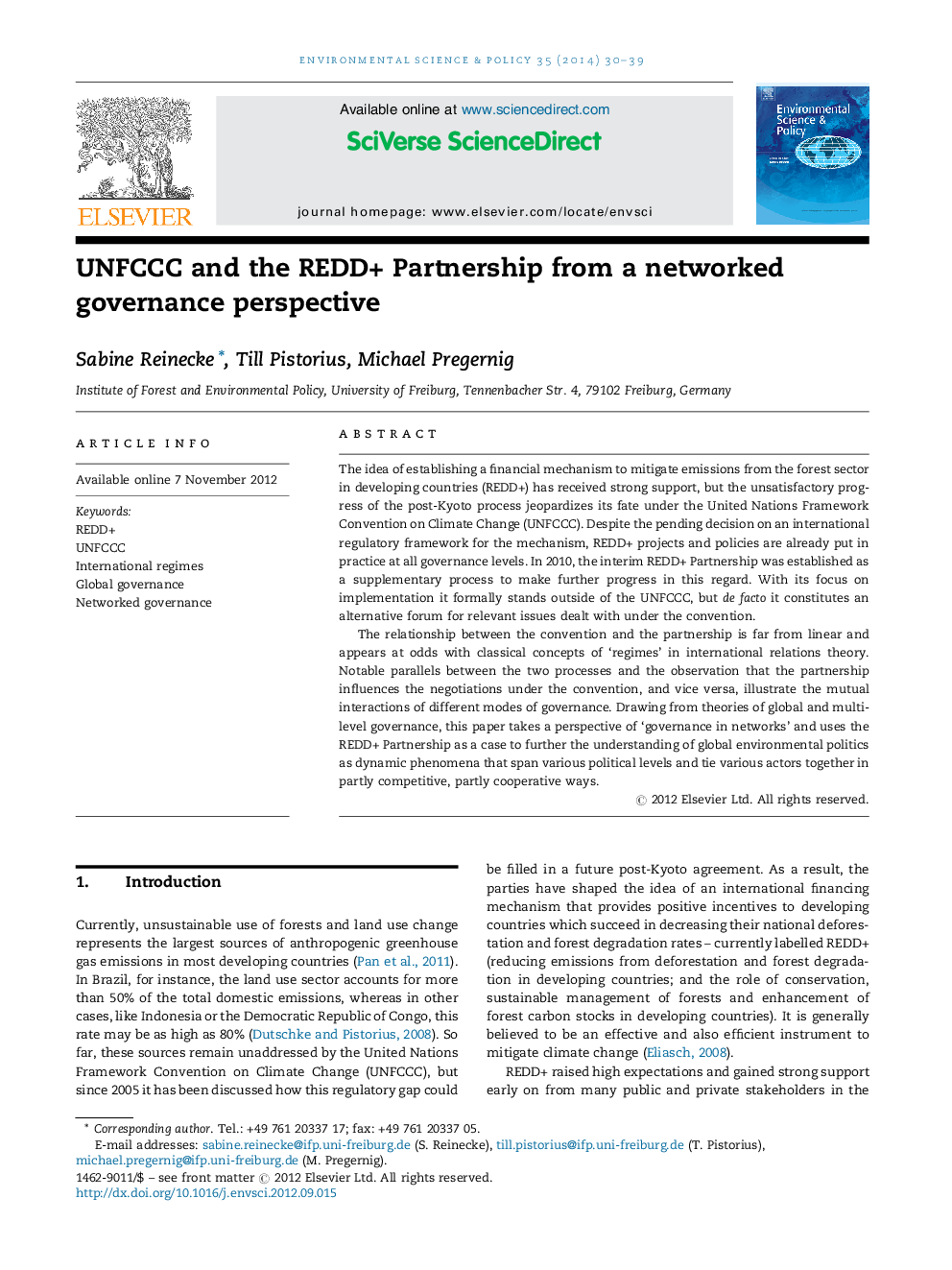| Article ID | Journal | Published Year | Pages | File Type |
|---|---|---|---|---|
| 1053558 | Environmental Science & Policy | 2014 | 10 Pages |
The idea of establishing a financial mechanism to mitigate emissions from the forest sector in developing countries (REDD+) has received strong support, but the unsatisfactory progress of the post-Kyoto process jeopardizes its fate under the United Nations Framework Convention on Climate Change (UNFCCC). Despite the pending decision on an international regulatory framework for the mechanism, REDD+ projects and policies are already put in practice at all governance levels. In 2010, the interim REDD+ Partnership was established as a supplementary process to make further progress in this regard. With its focus on implementation it formally stands outside of the UNFCCC, but de facto it constitutes an alternative forum for relevant issues dealt with under the convention.The relationship between the convention and the partnership is far from linear and appears at odds with classical concepts of ‘regimes’ in international relations theory. Notable parallels between the two processes and the observation that the partnership influences the negotiations under the convention, and vice versa, illustrate the mutual interactions of different modes of governance. Drawing from theories of global and multilevel governance, this paper takes a perspective of ‘governance in networks’ and uses the REDD+ Partnership as a case to further the understanding of global environmental politics as dynamic phenomena that span various political levels and tie various actors together in partly competitive, partly cooperative ways.
► We analyse the interaction of UNFCCC and the Voluntary REDD+ Partnership. ► Theoretically, we draw on theories on international relations, global and multilevel governance. ► We identify four analytical perspectives that elucidate how the partnership informs back on the negotiations under the convention. ► We find significant discrepancies between formal claims and political reality as regards the interaction between the two settings.
